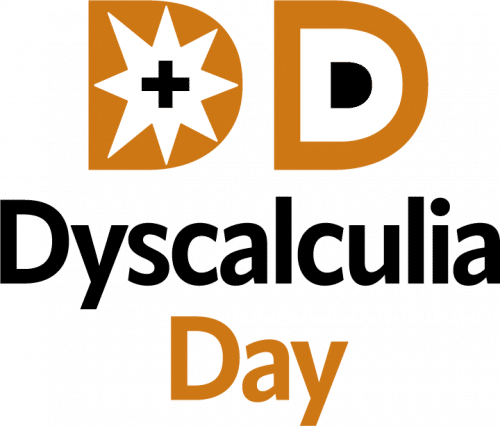Eda member of the board of Directors, Vincent Lochmann attended the Academy of European Law seminar in Trier in September 2018 about “Disability in Employment and beyond”. How can European law be interpreted about Employment and Dyslexia?
Some adults with dyslexia may face difficulties in the labour market. Some may need reasonable accommodation in the workplace to be able to participate to their full potential and undertake the essential elements of the job. However, the denial of these accommodations often creates difficulties at work and even worse may lead to unemployment.
International law may offer some solutions to these kinds of problems. The United Nation Convention on the Rights of Persons with Disability and a European Directive impose legal obligations prohibiting discrimination and requiring employers to provide reasonable accommodations. discrimination.
A New Definition Of “Disabilities”
Is a person with dyslexia disabled? The key reference in this matter is the United Nations Convention on the Rights of Persons with Disabilities (UN CRPD). Article one provides clear guidance on how to define disability, it states: “Persons with disabilities include those who have long-term physical, mental, intellectual or sensory impairmentswhich in interactionwith various barriersmay hinder their full and effective participationin society on an equal basiswith other”. Children and adults with dyslexia have difficulties with reading, writing, but also may have other specific learning disabilities. Having difficulties to read and write may have been in the past a small inconvenience. In the current world it is undeniably an impairment. Persons with dyslexia encounter “various barriers” in their daily life. It starts at school but it may also impact many aspects of daily life like reading an official document, finding his (or her) way in a public place, and of course employment.
Some would say “it is not an impairment, it is a different way to learn”. Right! Just like deaf persons don’t have a lack of language, they have a different language: sign language. Being disabled is not being less something, it is being different. This is the second part of the definition it is the interaction between an impairment and a barrier that creates a disability. Therefore, we need to look at barriers to participation. The UN Convention moves away a medical model of disability to a human rights model. “In the former medical model, the focus was on what is wrong with the individual?” explains Dr Shivaun Quinlivan, law lecturer at the Centre for Disability Law and Policy in Galway. The consequence of this is that the answers should be found with “medical solutions and how to fix the person”. The human rights model of the UN Convention focuses on barriers to participation of the person. “These barriers can be physical, attitudinal, societal…”In consequence, the answer is to be found in a “rights-based approach to inclusion” Dr Quinlivan says.
So, it is clear that the problem is no longer the person with his (or her) difference, but the environmental and societal barriers. This means we must now focus on reducing barriers to inclusion with accommodations, but what kind of accommodations? “Reasonableones” answers the European Union. The European Directive 2000/78 gives a definition for this:
In order to guarantee compliance with the principle of equal treatment in relation to persons with disabilities, reasonable accommodation shall be provided. This means that employers shall take appropriate measures, where needed in a particular case, to enable a person with a disability to have access to, participate in, or advance in employment, or to undergo training, unless such measures would impose a disproportionate burden on the employer.”
Reasonable Accommodations
It is clear that persons with dyslexia may need accommodations to be able to work “on equal basis with others”. These accommodations consist mostly in digital tools to facilitate reading and writing tasks. They may also concern the organisation of the workflow: it is obvious that it is better not to ask a dyslexic employee to be the secretary of a meeting, or to do the filing! It is also better that a person with dyslexia doesn’t receive unnecessary emails when it takes him twice as long to read them. His or her colleagues may need to be informed that this person is dyslexic and the employer must be “dyslexia aware” to understand these accommodations. It is important to note that these accommodations are not optional; there it is a legal duty to provide these accommodations. Dr Quinlivan explains that the duty to provide accommodations is “triggered from the moment a person with disability requests an accommodation”.
The European directive says the “burden shall not be disproportionate”. In the case of dyslexia, the accommodations never create disproportionate burden. It consists of simple and not expensive adaptations. It doesn’t not need to revolutionise the workflow. “The process of accommodation requires dialogue between the duty bearer and the employee”, Dr Quinlivan says. The individual with dyslexia is most often the best expert in relation to their own needs and appropriate accommodations.
As always about accessibility one can notice that what is absolutely necessary for some (e.g. reduce the number of emails for dyslexics) is often very useful for most of us, and very convenient for all.
An Impact For All European Citizens With Dyslexia
Having considered the main international texts, what about their impact on the daily life of European citizens with dyslexia? The UN Convention has been ratified by the EU so it is binding on the EU and the interpretation of EU law. Additionally, every member state of the EU has ratified the Convention in their own right. Therefore, all Member States should seek to comply with the principles in the Convention including the duty to provide reasonable accommodation. To find the national transpositions of the directive about “reasonable accommodations” in your country, visit this page of the Euro-lex website.
And what if the rights of the person are not respected? You can use the UN Convention to obtain compensation before the court especially if your country ratified the “optional” protocol of the Convention. There is different case law in different European countries that are based on the UN Convention. For example, the case law Skouboe Werge in Denmark: the Courts of Justice of the European Union held: “International agreement have primacy over instrument of secondary law. Those instruments must be interpreted in a manner consistent with those agreements.” Namely, in this case, the UN Convention is above national legislation. See the full judgement on this page of the Infocuria website.
Now, not all European countries has the same level of legislation. All of them have ratified the Un Convention, the EU directive is read in light of the Convention, the Courts of Justice of the EU is bound by the convention, but not all countries have signed the “Optional Protocols” which is more restrictive. Because of this option, the Convention hasn’t the same impact on national laws.
Shall we recommend to every person with dyslexia to threaten employers to starts legal proceedings? Of course not! But if you are a person with dyslexia, when negotiating your contract, or your career development, and if you need accommodations at work, keep in mind that European law is on your side!
Thanks to Shivaun Quilivan and Rosie Bisset for their support.
Vincent Lochmann, EDA Board member





